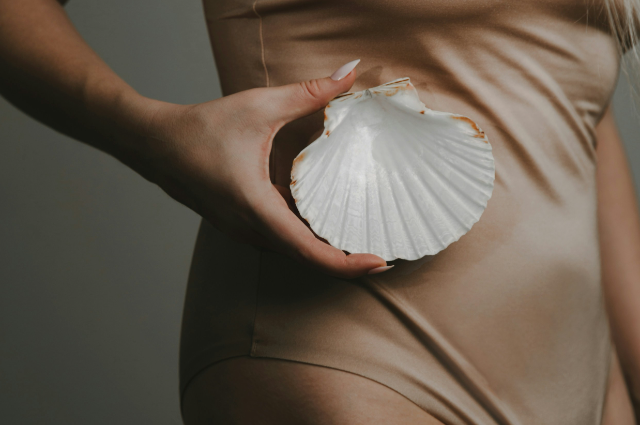
Photo by Birgith Roosipuu on Unsplash
Many individuals continue to suffer from low self-esteem and body confidence because of the idea of having a flawless body since society places immense value on having a flat stomach. This is further fueled by the multiple online suggestions on how to de-bloat. Beauty has increasingly become a definition of an individual's body shape and weight, rather than uniqueness. Body standards, which are socially created, are pushed forward in daily life, and they get amplified through social media. A "perfect" body shape is depicted through social media channels such as Instagram, TikTok, and Facebook using influencers and models. Posts that reflect the ideals of society's beauty are the most popular in society, either through a swimsuit photograph or even a lowly everyday photo.
Social media and societal pressures - perception of body image and beauty standards.
From a young age, women are exposed to these unattainable ideals that lead to distorted self-perceptions. The media also has played a significant role in it as they usually propagate glorified images and edited content that sets unattainable beauty expectations. Individuals become ashamed to disclose even their insecurities in front of others. Negativity towards the body tends to appear more strongly in women based largely on diet culture that makes people believe they should remain observant of their food intake and weight and therefore have to maintain recording throughout their lives.
According to studies, girls seem to worry more than boys about their outward appearance, mainly because they see idealized standards of bodies more often in the media. The media often presents such a narrow notion of beauty that undermines women's achievements and capabilities, compressing their worth solely to mere physical appearance. Social media might provide the means to self-expression but simultaneously feeds into insecurities and unhealthy beauty standards. This again calls for continuous external validation, which can have adverse effects on mental well-being. The burden of beauty standards lies upon both genders, but each responds differently to the pressure. While one might crave connection and discussion about her feelings, the other might take a step back and keep it to themselves. Recognizing the differences might foster a better environment for individuals experiencing body image issues.
By acknowledging and appreciating the diversity of beauty, we empower people, especially women, to be themselves. We teach the future generation that it's inner quality that matters instead of outward beauty, hence promoting the culture of self-acceptance. This transformation empowers individuals to redefine beauty on one's terms, thus breaking away from socialistic expectations and restraints. Promoting an inclusive society where diversity in beauty is acknowledged and celebrated is important for overall psychological and wellness improvement.
Strategies for Busting the Beauty Myth
- Body Positivity and Self-Acceptance: We should encourage education and awareness about body positivity, which will help in embracing unique bodies and cultivating a healthier self-image. This can be accomplished through workshops, campaigns, and discussions on the value of self-acceptance.
- Media Literacy Skills: Teaching people how to critically look at and challenge the media they consume enables them to take everything they see on social media with a pinch of salt. This empowers the person to question and counter hostile messages, that help them understand that beauty has unrealistic portrayals and how editing and filters have the power to counterfeit reality and flaws.
- Diversity in All Its Forms: It is important to celebrate all body shapes, sizes, colours, and abilities and challenge narrow beauty standards by promoting inclusivity and diversity in beauty through social media. Initiating campaigns and movements establishes the space to reflect on the stereotypical context of attractiveness, encouraging people to recognize beauty in a wide range of possibilities.
- Open Body Image Discussion: An open avenue to speak about body image and vulnerability can give them an outlet to express how they feel. This, therefore, would normalize body image struggles and potentially make way for a collective healing experience.
- Supporting brands that show the rawness and authenticity of beauty standards- Brands that promote the real standard of beauty, that is flaws, scars, different body types or skin textures should be appreciated and supported, as they propagate the truth that no human is perfect and imperfections is what brings out our authenticity.
Redefining Beauty Standards and Embracing Diversity
Diversity is necessary to create a healthy environment that can actively challenge limiting norms. Redefining our beauty norms through embracing the diverse spectrum of body types, skin tones, and expressions of the individual, can help in constructing an inclusive understanding of what true magnanimity is. Self-acceptance is the key to celebrating the uniqueness and achievement of women, through inner strength. Together, we can change the narrative of beauty and build a society that celebrates women, nourishes their mental well-being, and celebrates all kinds of womanhood. Let's all work for a better world where women thrive and move free from societal pressures.
